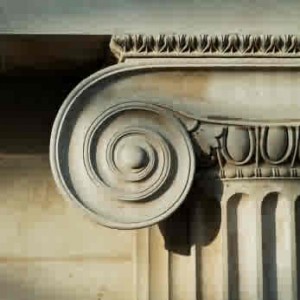by Christopher Perrin, PhD | Mar 11, 2014 | Articles

From time to time I am asked what colleges I think make for a good fit for classically-educated students. With my second child in college and my first already graduated, naturally I have thought about this a bit. In my work with the Society for Classical Learning, I have also been working with my colleagues to partner with colleges around the nation.
The truth is that classically-educated high school graduates are going to a wide variety of colleges, both Christian and secular. In my experience, these students are competitive and often gain entry into selective colleges, and often receive scholarships. The word is out among many colleges that classical students are generally great students, well-prepared for high-level college work. I know from talking to professors firsthand how this seems to have worked: about ten years ago various colleges began to notice that classically-educated students were excelling at college. K-12 schools (and homeschools) from which these students came where identified as small but rich sources of great students. The colleges then began to recruit directly at many of these schools. Happy students at college began to encourage their friends (still in high school) to apply. More classical students began to flow into some of these colleges (like Grove City College here in PA).
Some of these colleges began to create programs especially for classically-educated students (like Hillsdale College and Grove City College). Some colleges began to emphasize programs already established that appeal to classical students (like the Torrey Institute at Biola College, Great Texts Program at Baylor University and the Jerusalem & Athens Forum at Gordon College). Some colleges have started graduate programs designed to equip students to teach at classical schools like New Saint Andrews College and Houston Baptist University.
Then there are those colleges that have traditionally already had aim at classical students (some new some older): The University of Dallas (Catholic), St. Johns College (secular), Thomas Aquinas College (Catholic), Patrick Henry College (Christian), New Saint Andrews College (Christian). Traditionally academic Christian colleges like Wheaton College and Calvin College have also begun taking notice of classical students, and attracted them. Calvin philosophy professor James K. A. Smith (author of Desiring the Kingdom) has been influential to leaders in the classical Christian education renewal, and become an advocate for it. The Wheaton College graduate school dean (and professor of New Testament) Nicholas Perrin is also an advocate of the renewal and indeed helped found a classical school close to Wheaton (Covenant Classical School).
Other Christian colleges are also taking note of classical students. Messiah College and Eastern College have attracted classical students, and professors in both colleges have expressed interest in recruiting more. The same could be said for many other Christian colleges such as Covenant College, Geneva College, LeTourneau University, The Kings College and Belmont College, and several others.
Classical students are also going to secular colleges, most often the smaller liberal arts colleges, but also larger state universities and then often in honors programs. Yes, there are some classical students who have gone to Harvard, Princeton, Penn, Stanford, MIT and the like, but these schools are statistically extremely hard to get into, even by those qualified (a perfect SAT score doesn’t mean you will gain admission). Students are also going to established liberal arts colleges such as Middlebury College, Grinnell College, Furman University and Davidson College. Regionally it is not uncommon for classical students to gain admission to the larger state universities such as the University of Virginia, Penn State or the University of Michigan.
All in all, classical students are getting into very good colleges, and are sought-after by colleges that recognize the excellent education they have received.
So what do I recommend? I think that the college should fit the student and the student should fit the college. Some students are ready for the experience of a secular college, others are not. Some will thrive at a larger state university, but many classical students will want the smaller classes and discussion format more frequently offered at small liberal arts colleges, Christian or secular. Classical students going to a large university will likely enjoy honors programs or finding more dynamic interaction among students and professors in their major. Christian classical students will want to find fellowship in a Christian group. There is wisdom in the notion that students must seek out the education they want at any college and not expect it will just come to them. We should also note that factors such as proximity and cost are important factors when selecting a college.
Still, I have a list of favorites, based on my limited experience and knowledge. This list is therefore short and no doubt leaves out many excellent colleges. Feel free to post your own favorites and list the reasons–I may then revise my list based on your feedback! For a larger list of colleges that classical students are attending, see the list provided by the Association of Classical Christian Schools (ACCS) here: List of colleges ACCS students attend
Christian Colleges
- Grove City College: Very friendly to classical students, and actively recruiting them. GCC has developed a classical studies minor that deepens classical learning and prepares students to teach in classical schools. Disclaimer: my daughter Zoe graduated from GCC.
- Biola University: The Torrey Institute at Biola has been a great fit for many classical students and has sent many graduates into classical schools as teachers.
- New Saint Andrews College: A small, dynamic and classical college in Moscow, Idaho. Their oral Latin program is notable and unusual. One “major” for all students.
- Baylor University: The Great Texts Program has done the same thing for classical students as has the Torrey Institute at Biola.
- Patrick Henry College: A small college in Northern Virgina (very beautiful setting) that is classical in orientation, and offers remarkable internships in Washington, D.C.
- Gordon College: The Jerusalem & Athens Forum is excellent, so is the Gordon in Orvieto Program.
- Houston Baptist University: This college is rapidly growing to serve classical students and has been recruiting great professors to the campus (e.g. Louis Markos, John Mark Reynolds).
- Wheaton College: Traditionally known for great academics, well-suited for classical students.
- Calvin College: Very much like Wheaton, with a growing appreciation for classical students.
- Messiah College: A warm, communal atmosphere with dedicated professors who love teaching. The philosophy and English departments are particularly welcoming and strong.
- Eastern College: Another warm campus (blue jeans atmosphere). The honors program has attracted classical students.
- Covenant College: A strong academic college in the reformed tradition.
- University of Dallas: A robust Catholic college that with a strong humanities emphasis.
- Ave Maria College: Located in Florida, this is a relatively new Catholic college that is traditional, pious and classical.
Secular Colleges
- Hillsdale College: A conservative liberal arts college in Michigan, friendly to the Judeo-Christian tradition in the U.S. It also features a program for training classical educators.
- St. Johns College: The third oldest college in the country, this is a “great books” school with a common curriculum and small classes. There is a campus in Annapolis, MD and Santa Fe, NM.
- University of Virginia: Strong classical department; many classical students have gained admission to UVA.
- University of Texas: I believe UT hosts the larges classics department in the world. A fine choice for students wanting to pursue a classics major.
- Furman University: Many classical students enjoy this school and recommend it to others.
by Christopher Perrin, PhD | Feb 7, 2014 | Articles

Scholé in The Scriptures: Choosing What Is Better
Those of you who know this blog (or anything about me) know that I have been reading and writing about returning scholé to our schools and homeschools for about three years now. Here is a brief article relating the Greek concept of scholé to the Old and New Testament.–CP
Aristotle and Scholé
Well it was Aristotle who first described the importance of scholé (leisure, restful learning and conversation, contemplation), and yet the Hebrew Scriptures (which predate Aristotle) seem to touch on this theme as well. The New Testament certainly does too in some unique ways.
Aristotle writes in Book VII of the Politics:
…we fulfill our nature not only when we work well but when we use leisure (scholé) well. For I must repeat what I have said before: that leisure is the “initiating principle” of all achievements. Granted that work and leisure are both necessary, yet leisure is the desired end for which work is done; and this raises the question of how we ought to employ our leisure. Not by merely amusing ourselves, obviously, for that would be to set up amusement as the chief end of life. (Book VII:iii)
Aristotle does not disparage wage-earning work, but he says that such work (and amusement) cannot be fitting ends for human aspiration and life. The highest end is the right employment of scholé.
Scholé in The Old Testament
Now this insight was picked up by the church (many centuries later) and identified with contemplation. This is not surprising since the Old Testament also suggests a life of “restful learning” and contemplation as the heart of a full human life:
One thing I ask of the Lord, this is what I seek: that I may dwell in house of the Lord all the days of my life, to gaze upon the beauty of the LORD and to seek him in his temple. (Psalm 27)
This is what the Sovereign Lord, the Holy One of Israel, says: “In repentance and rest is your salvation, in quietness and trust is your strength, but you would have none of it. (Isaiah 30:15)
I have no peace, no quietness; I have no rest, but only turmoil.” (Job 3:26)
The Hebrew concept of shalom (often translated “peace”) also includes a connotation similar to scholé: In addition to the idea of safety and soundness, shalom also frequently means quiet, tranquility and friendship—all components of scholé.
In the Greek translation of the Old Testament (the Septuagint) scholé only appears twice (in Genesis 33:14 and Proverbs 28:19) and means leisure in the primary sense of “going slowly” (Genesis 33:14) and even wasting time (Proverbs 28:19). In the Wisdom of Sirach however, we find this interesting passage:
The wisdom of a learned man cometh by opportunity of leisure (scholé): and he that hath little business shall become wise. How can he get wisdom that holdeth the plough, and that glorieth in the goad, that driveth oxen, and is occupied in their labors, and whose talk is of bullocks? (Wisdom of Sirach 3:24, 25)
Here the word scholé is used very much as Aristotle uses it, and the context makes it clear that wisdom comes from the man who takes the opportunity of scholé and does not over-indulge in wage-earning labors. Note how the passage not only addresses too much business or labor—but also address the mental preoccupation of the man who only talks about his work. If his only talk is of his bullocks, we must surmise that his only thought is about them as well.
Scholé in the New Testament
In the New Testament (written in Greek), scholé only occurs a few times. Scholé can refer to a lecture hall (where scholé or learned discussions occur) and this is what we find in Acts 19:9 where we read that Paul took his disciples daily for discussions at the lecture hall (scholén) of a man named Tyrannus. In 1 Cor. 7:5, Paul writes that married couples should devote (scholaséte) themselves to prayer. Paul here uses the verbal form of scholé that means to have rest or leisure, or to be dedicated or devoted (no distractions or obligatory work!).
Beyond the actual use of the word scholé, we do find the New Testament addressing the concept of scholé in several places:
The Example of Christ
The first indication we get that Jesus condones “restful learning” is that time we find him at age 12, away from his parents for at least three days, “in the temple courts, sitting among the teachers, listening to them and asking them questions.” (Luke 2:46). Leaving aside the fact that “everyone who hear him was amazed at his understanding and his answers” (2:47), we should note that Jesus spend three days (sleeping at the temple too?) engaged in conversation with the best teachers in Israel. And he did this at the age of a 6th grader. He tells his parents that “he had to be in his Father’s house” (2:49), but we note that what he was doing in his Father’s house resembles scholé or restful learning.
We find Christ frequently going off by himself to pray, even for 40 days at a time. Christ seemed never to be in a hurry, but relaxed and peaceful. Even when others around him are frenetic, he is tranquil. In Luke 10, Martha implores Jesus to tell her sister Mary to help her with dinner preparations, for Martha was busy working while Mary was sitting and talking with Jesus. Jesus responds to her: “Martha, Martha you are anxious (busy) and troubled about many things, but only one thing is needed. Mary has chosen what is better (literally “the good part”), and it will not be taken from her.” (Luke 10: 42)
It is hard to imagine a better illustration from the gospels about what scholé means than this event recorded in Luke 10. We all have to prepare meals, do dishes and work for wages—and these are good things. The better thing, however (when we are free to chose), is to talk with a master. Mary was talking with the Master, and certainly chose wisely.
Example from Paul’s Writings
Paul writes in 2 Cor. 3:
Now the Lord is the Spirit, and where the Spirit of the Lord is, there is freedom. And we all, who with unveiled faces contemplate[a] the Lord’s glory, are being transformed into his image with ever-increasing glory, which comes from the Lord, who is the Spirit. (2 Cor. 3: 17. 18)
Paul notes that the faithful, in the context of the freedom given by the Spirit, contemplate (gaze, reflect) the glory of God and are then transformed to resemble that very glory. This reminds us of Christ’s teaching that a student, when he has been fully trained, will be like his master (Luke 6:36). Paul also hints that this transformation is a process that takes time. We gaze and study the glory, and slowly (with ever-increasing glory, literally “from glory to glory”) we grow to resemble this glory.
Paul has in mind the experience of Moses coming down from Mt. Sinai after meeting with God there, having received the two tablets containing the Ten Commandments. When Moses came down from that mountain, his face was glowing brightly enough that he spooked the Israelites and had to put a veil over his face.
When Moses came down from Mount Sinai with the two tablets of the covenant law in his hands, he was not aware that his face was radiant because he had spoken with the Lord. When Aaron and all the Israelites saw Moses, his face was radiant, and they were afraid to come near him… Then Moses would put the veil back over his face until he went in to speak with the Lord. (Ex. 34:29, 30, 35)
Apparently to Paul, the life of the Christian is to be one of contemplation and gazing—looking on the same one that set Moses face aglow. This implies undistracted gazing, focus and….time. Looking, gazing, contemplation thus become a metaphor for learning, conversation and transformation. After all, Moses was not upon the mountain in a kind of dream sleep—he was rather talking and listening to God—having a remarkable conversation with the Master. Paul suggests that we can now do the same.
Conclusion
It seems that even when not using the word scholé, that the Old and New Testaments nonetheless describe a growing and learning process that is very much in keeping with Aristotle’s use of the word. Slow, restful, conversation and learning is set before us as an example to follow, with Christ himself as the Master of scholé.
If the entire Christian life can be summarized as a kind of slow and sanctified conversation with the Master, could it be that all of our learning should take a cue from this same kind “restful learning” and resemble a refreshing and ongoing conversation?
If Christ says “Come to me, all you who are weary and burdened, and I will give you rest,” and if he says, “ Take my yoke upon you and learn from me, for I am gentle and humble in heart, and you will find rest for your souls,” (Matt. 11: 28, 29) then should not the way we educate our sons and daughters be gentle and restful?
How many of us have been busy about many things, thinking that we were not free to choose anything else?
by Christopher Perrin, PhD | Dec 10, 2013 | Articles
 Classical Academic Press (of which I am a part) has launched a new online academy called Schole Academy. Naturally, some want to know what schole means, and sense it has something to do with school. Well it does and it doesn’t, it turns out. Here is the first essay of three on the recovery of schole in education.
Classical Academic Press (of which I am a part) has launched a new online academy called Schole Academy. Naturally, some want to know what schole means, and sense it has something to do with school. Well it does and it doesn’t, it turns out. Here is the first essay of three on the recovery of schole in education.
My friend and colleague Andrew Kern (of the Circe Institute) once hosted a conference with the theme “A Contemplation of Rest.” This was several years ago, but Andrew deserves credit for raising the banner of a problem we all know something about: Modern education is an education in anxiety. Modern administrators, teachers, parents and students are frenzied and frenetic. Students rush to classes (at the sound of bells), often eight classes a day, then run to practices, music lessons and other activities. Then a night of homework when they try to manage assignments for their eight classes for which they receive numerical assessments, often on a weekly basis. Most students by junior high fall into the all too familiar cram-pass-forget cycle of “learning” that has afflicted almost all of us during our own education. We have all taken courses, the content of which faded into oblivion just a few months (or weeks) after we completed them. Some of us can barely recall if we even took a course in say, American history or British literature.
Well the good news is that for about thirty years there has been a steady push against this kind of frenetic, ephemeral education and a curious inquiry into the kind of education that preceded this unsettling schooling that dominates America. What came before it was the so-called classical model, itself multi-faceted but still a coherent, integrated approach to education that while rigorous, was slower and more contemplative. The classical tradition of education was (and is) many things woven together: a curriculum (including the seven liberal arts), a community (yes it does take a village) and a pedagogy (from chanting in younger grades to Socratic discussion in older ones). It is a large tradition and I can heartily recommend that readers consult the new book by Kevin Clark and Ravi Jain, The Liberal Arts Tradition: A Philosophy of Christian Classical Education.
However, an important part of the tradition is contemplation itself. It would not have been conceivable to our forebears to consider a daily schedule of eight different classes, nor even the prospect of choosing a “major” field of study until the liberal arts were mastered. There were no majors in college until about the mid-1800s. Education in the classical tradition was rigorous, but it was slower, and focused on fewer arts at a time to ensure mastery and permanent learning. There was no “gaming the system” or the test; students were taught by masters who got to decide when a student was ready to proceed to further study. Teachers were expected to be masters who could be trusted to teach (because they were masters)—not functionaries of a system that forces all teachers to use the same techniques at the same time and verify their compliance by machine-readable multiple choice instruments.
Contemplation—do we even know what it is? And once we recover an intellectual grasp of it, do we know how to engage in it? Can we even slow down enough to read a long poem without getting distracted and fidgety? Have we become trained and habituated to constantly move, shift and flux—in body and mind?
The Greek word for leisure is schole (skoh-LAY). It does not mean leisure in the American sense of relaxing on a vacation at the beach. It means rather “restful learning” that comes from discussion, conversation and reflection among good friends. For the Greeks, this was the noble thing—one of the highest activities of human existence. The Greeks had another word for that kind of work that we all must do to earn our bread: ascholia. Ascholia means that necessary activity that keeps you from schole. Now wage-earning is a fine and noble thing in its own right, properly conceived. But do you see that schole is a higher thing still? Until we do, we won’t have it because we won’t want it. The classical tradition esteemed it and sought and so should we.
I close with an irony. Yes, we do derive our word “school” from schole. Schole moved into the Latin as schola (with some change of meaning) and then into German as schule and English as “school.” By the time we get to English, the restful connotation of schole has vanished. We can hope, however, that the renewal of classical education will put the schole back into school.
by Christopher Perrin, PhD | Nov 22, 2013 | Articles, Seminars & Lectures, Videos

Josef Pieper in his book Leisure The Basis of Culture says that education (philosophy and poetry for that matter) begins in wonder. Kevin Clark and Ravi Jain in their new book, The Liberal Arts Tradition, also note that in the classical tradition, education moves from wonder to worship to wisdom (the three W’s of classical education). Can a student truly be a student if she is not compelled to wonder at the startling world into which she was born? A. G. Sertillanges (in The Intellectual Life) says,
Every intellectual work begins by a moment of ecstasy; only in the second place does the talent of arrangement, the technique of transitions, connection of ideas, construction, come into play. Now what is this ecstasy but a flight upwards, away from self, a forgetting to live our own poor life, in order that the object of our delight may live in our thought and in our heart.
Now by ecstasy, Sertillanges is appealing to the literal meaning of the Greek word ecstasis, which means to be lifted up and out of the ones “station” or the place where one is fixed, standing. Children are naturally set to wonder and delight in truth, goodness and beauty–and they are easily cultivated to continue in wonder. Do we really have a student, if he is not still wondering at the cosmos? The Latin studium (from which student is derived) means eagerness, zeal, enthusiasm, even fondness and affection. We could argue that without zeal and affection for truth, goodness and beauty, without love for the lovely–a student cannot truly be a student.
For what it is worth, I explore this theme in the following webinar, recorded and available here: Education in Wonder and Curiosity Webinar











